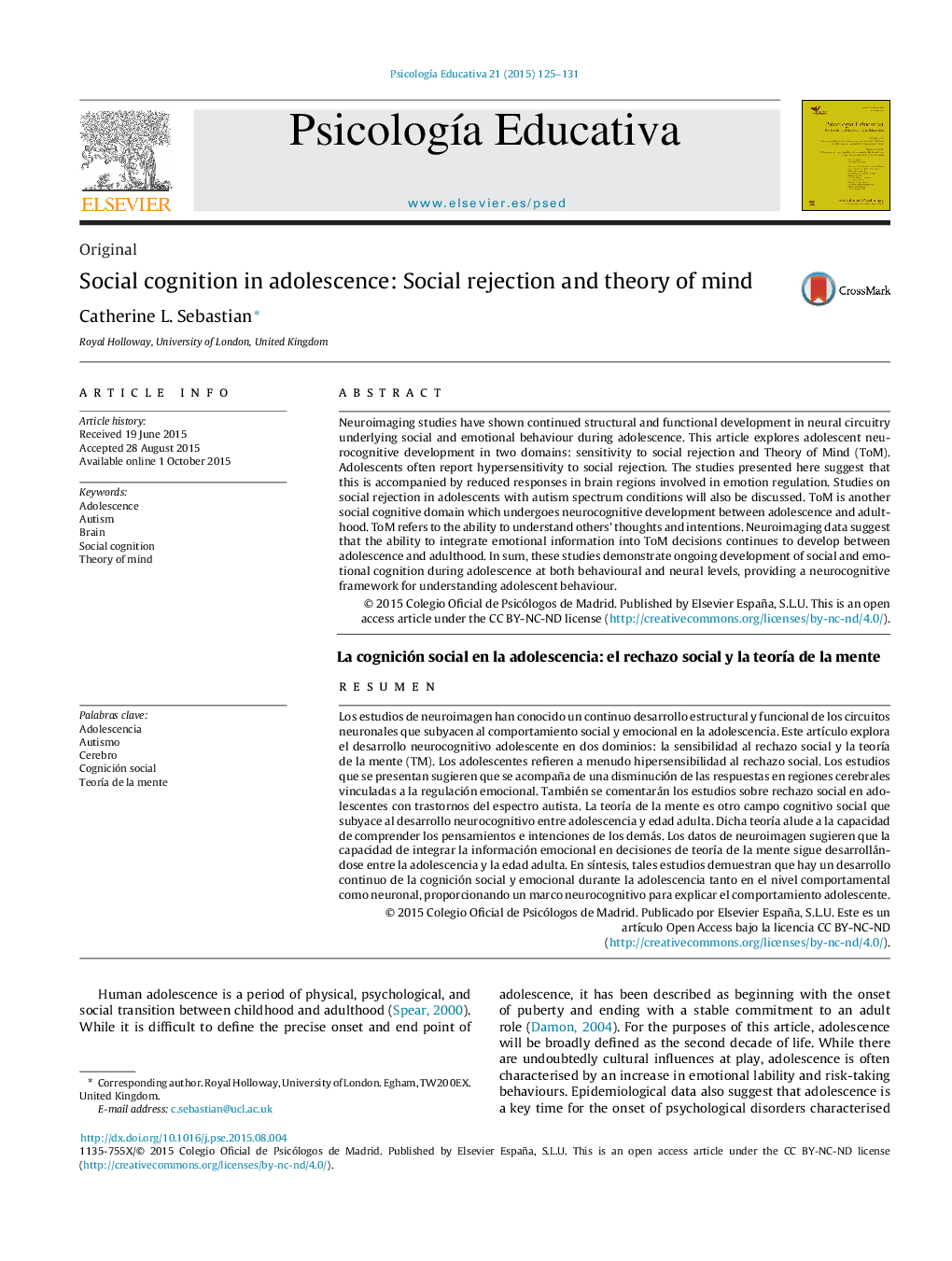| کد مقاله | کد نشریه | سال انتشار | مقاله انگلیسی | نسخه تمام متن |
|---|---|---|---|---|
| 919152 | 920035 | 2015 | 7 صفحه PDF | دانلود رایگان |
Neuroimaging studies have shown continued structural and functional development in neural circuitry underlying social and emotional behaviour during adolescence. This article explores adolescent neurocognitive development in two domains: sensitivity to social rejection and Theory of Mind (ToM). Adolescents often report hypersensitivity to social rejection. The studies presented here suggest that this is accompanied by reduced responses in brain regions involved in emotion regulation. Studies on social rejection in adolescents with autism spectrum conditions will also be discussed. ToM is another social cognitive domain which undergoes neurocognitive development between adolescence and adulthood. ToM refers to the ability to understand others’ thoughts and intentions. Neuroimaging data suggest that the ability to integrate emotional information into ToM decisions continues to develop between adolescence and adulthood. In sum, these studies demonstrate ongoing development of social and emotional cognition during adolescence at both behavioural and neural levels, providing a neurocognitive framework for understanding adolescent behaviour.
ResumenLos estudios de neuroimagen han conocido un continuo desarrollo estructural y funcional de los circuitos neuronales que subyacen al comportamiento social y emocional en la adolescencia. Este artículo explora el desarrollo neurocognitivo adolescente en dos dominios: la sensibilidad al rechazo social y la teoría de la mente (TM). Los adolescentes refieren a menudo hipersensibilidad al rechazo social. Los estudios que se presentan sugieren que se acompaña de una disminución de las respuestas en regiones cerebrales vinculadas a la regulación emocional. También se comentarán los estudios sobre rechazo social en adolescentes con trastornos del espectro autista. La teoría de la mente es otro campo cognitivo social que subyace al desarrollo neurocognitivo entre adolescencia y edad adulta. Dicha teoría alude a la capacidad de comprender los pensamientos e intenciones de los demás. Los datos de neuroimagen sugieren que la capacidad de integrar la información emocional en decisiones de teoría de la mente sigue desarrollándose entre la adolescencia y la edad adulta. En síntesis, tales estudios demuestran que hay un desarrollo continuo de la cognición social y emocional durante la adolescencia tanto en el nivel comportamental como neuronal, proporcionando un marco neurocognitivo para explicar el comportamiento adolescente.
Journal: Psicología Educativa - Volume 21, Issue 2, December 2015, Pages 125–131
